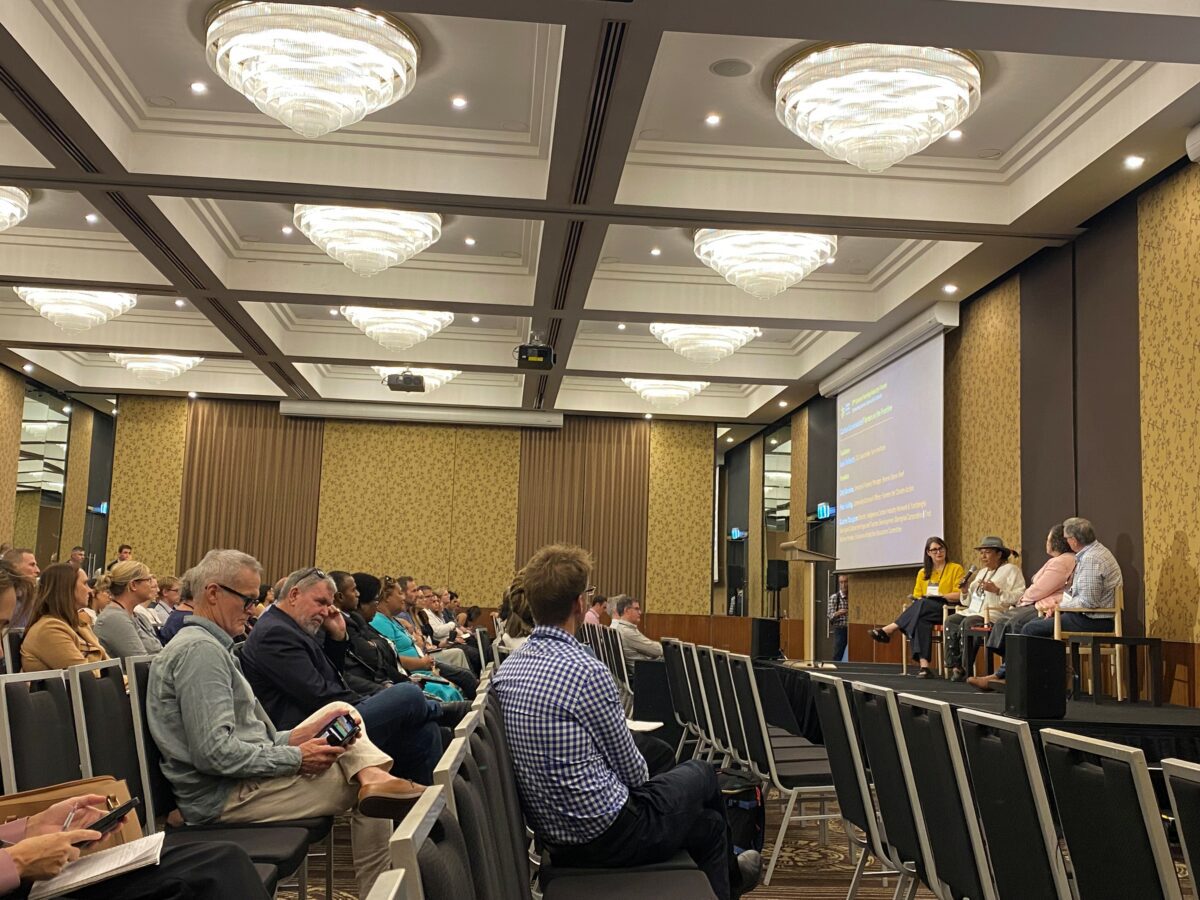The carbon market has lost momentum over the past few years, and that momentum must be restored while prioritising a pipeline of high integrity methods and projects, the Chair of the carbon industry’s independent watchdog said today.
Professor Karen Hussey is the first full-time Chair of the Emissions Reductions Assurance Committee (ERAC), the statutory body responsible for ensuring the integrity of Australia’s carbon crediting framework.
Hussey told today’s Carbon Farming Industry Forum in Cairns that proposals for new ways to earn carbon credits (known as ACCU methods) would be vetted by ERAC in part on how much carbon abatement they can potentially deliver “relatively quickly.”
However, “we must make sure we’re not compromising on integrity,” Hussey told the Forum, which is being hosted by the Carbon Market Institute (CMI).
Referring to a major review of the ACCU framework conducted by a panel led by Australia’s former Chief Scientist, Ian Chubb, Hussey, described the carbon market as now operating in a “post-Chubb” and “big data” world.
Hussey said it was crucial for market participants suggesting possible new ACCU methods to “let the sunshine in”, regarding the design features and science underpinning projects, adding that it was important to provide extensive data on carbon methods and projects so they can be scrutinised by third parties.
“The more measurement that can be incorporated into a new method the better.”
“We need to give these projects time to deliver the goods. But on that journey, we need to be as open and honest as we can,” she said.
Describing ERAC and its secretariat as “a small but mighty team”, Hussey said that in vetting potential new ACCU methods, ERAC will examine their complexity, as well as their capacity to generate broader benefits and incentivise innovation, and whether there is any risk of adverse impacts.
It will also carefully examine whether those suggesting new landscape-based ACCU methods are partnering with First Nations groups and taking into account traditional ecological knowledge, she said.
In addition, ERAC is considering ways to ensure smaller land managers have greater opportunities to develop carbon abatement projects, Hussey said.
In its deliberations, ERAC will also examine the risk that the impacts of climate change could undermine the capacity of a proposed new ACCU method to deliver abatement, she added.
CMI CEO John Connor welcomed ERAC’s commitment to guiding the development of a pipeline of high integrity ACCU methods, telling the Forum “it is a time for urgency and outcomes”.
“The land and agricultural sector, already a major contributor to Australia’s emission reductions to date, will be called on to do more – up to eight times more according to recent analysis from Climateworks Centre, with carbon markets able to play a major part,” he told the Forum.
“We need strategies to align and turbo-boost Australian public and private investment through commitments to reverse deforestation, support ecological restoration, and drive carbon removals at scale,” Connor said.
That must be achieved while “doing right” by local communities, First Nations peoples, nature, investors, and the broader public, and while also meeting demands for food, fibre, and sustainable transport fuels, he said.
Ahead of the opening day at the Carbon Farming Industry Forum, CMI released its third annual Carbon Farming Roadmap report, which evaluates the progress of all Australian jurisdictions in fostering growth & ambition across the industry, as well as facilitating transparency and integrity. The full report is available here.
About the Forum
The Carbon Farming Industry Forum will take place in-person at the Shangri-la The Marina from May 20-22 in Cairns. The Forum Program includes interactive plenaries, workshops and networking spread across two days, Tuesday 21st and Wednesday 22nd May 2023.
Under the umbrella theme of “Connecting Country, Community & Climate”, the 2024 Forum will focus on the following key themes providing a framework for discussions:
- Carbon Farming Market Developments, Optimising Policy Frameworks & Market Design
- Agricultural & Land Sector Decarbonisation
- The Nature & Climate Nexus
- Communicating Benefits & Building Capacity
The Forum is a national event convening the major stakeholders across the land-sector carbon credit supply chain to reflect on industry progress against the Carbon Farming Industry Roadmap.
About the Carbon Market Institute
The Carbon Market Institute (CMI) is a member-based institute accelerating the transition towards a negative emissions, nature positive world. It champions best practice in carbon markets and climate policy, and its around 150 members include primary producers, carbon project developers, Indigenous organisations, legal, technology and advisory services, insurers, banks, investors, corporate entities and emission intensive industries. The positions put forward constitute CMI’s independent view and do not purport to represent any CMI individual, member company, or industry sector.
For further information, contact Thomas Hann on 0408 880 536 or thomas.hann@carbonmarketinstitute.org



